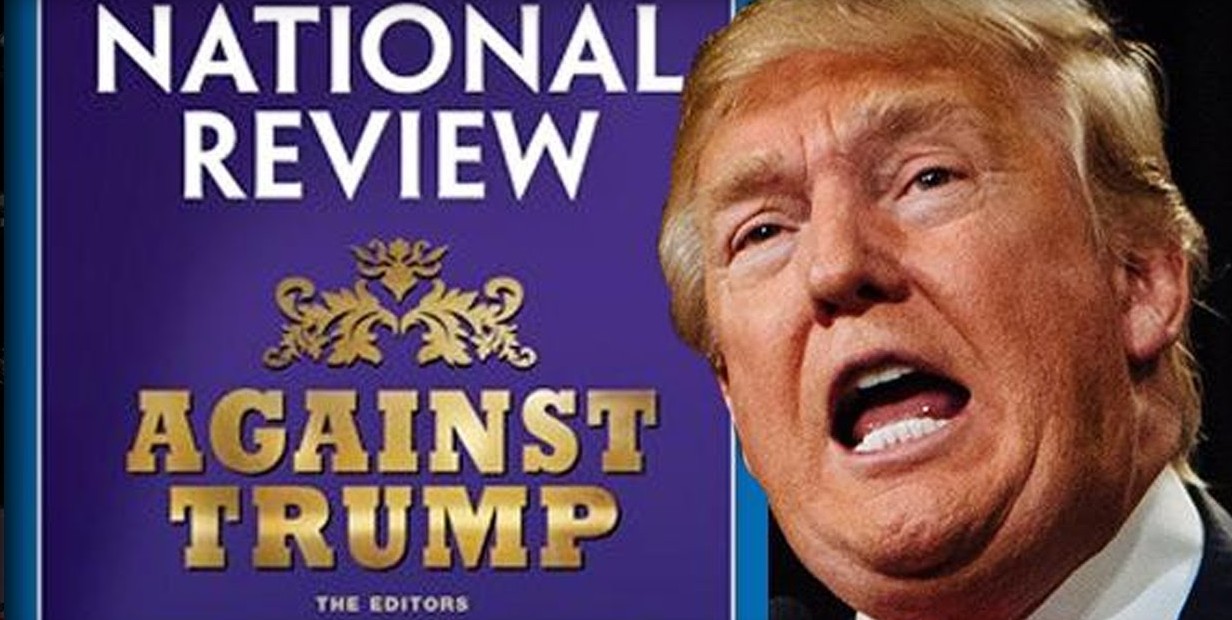The National Review‘s opinion piece written by America’s most prominent conservatives is, in a word, alarmed. Titled “Against Trump,” the article contains criticisms ranging from Trump’s ridiculous immigration schemes to his obvious racism. Yet Trump’s view that alarms and baffles commentators the most is his appeal to voters from seemingly every quarter of conservatism.
While Trump himself is manifestly not a populist, his constituents are. Furthermore, they are populists who would vehemently deny the label.
Trump’s accidental populism highlights a conservative base shaken by an uncertain economic future, a declining middle class, and liberal victories overturning “traditional values.” Trump’s failures and successes echo – on a grander scale – the failures experienced by his constituents and the American Dream that they believe in. Trump’s tone of individualism does not alienate the voters for whom there are no safety nets; rather, it promises that the same individualism will uplift each one of them. This collective individualism, the implicit promise that each of these disaffected conservatives has an inner Trump, amounts to a form of neoconservative populism. The common man, through his own effort, will join the masses simultaneously rising through the promise of Trump’s America.
Trump is shaping the Republican Party not by molding preexisting doctrine but instead by highlighting the fault lines in a way that will prove far more damaging than Ted Cruz’s extreme conservatism.
Part of the essential problem with Trump’s message – the issue highlighted by National Review commentators – is that he fails to present an ideology that is steadfastly conservative. Few would contest that many of his drastic ideas (for example, halting birthright citizenship and building a border wall) are far-right and nationalistic, but Trump’s support of strengthened government-business ties are anathema to steadfast conservatives. The fact that Trump has built a large support base on such a diverse platform alarms party leaders, and it points to a future GOP based not on traditional conservative leadership but on catering more specifically to extremes of constituents.
The other aspect of Trump’s candidacy that most rankles conservative leaders lies not with his divergence from the modern Republican campaigning but with the ways in which he uses and magnifies the most ludicrous aspects of that practice. Most prominent Republican candidates have a flexible relationship with the truth during stump speeches, debates, and news publications. Trump takes these half-truths and unsubstantiated “facts” to farcical extremes. While establishment-backed candidates including Marco Rubio confine themselves to statements that contain at least partial truths, Trump is boldly unabashed about asserting claims that fail on economic, social, and legal grounds.
These two campaign practices, while wielded to great effect in practice, have not brought about a revolution in the Republican Party. Nor have they shown a way forward for the GOP into a future concerned with immigration, equal rights, and the environment – points on which conservatives are notoriously vulnerable. Rather, Trump has highlighted a growing segment of Republican voters who are willing to abandon the party establishment for a candidate who is unpredictable and an outsider. This chasm between the proposed direction of the old guard – who prefer the experienced politicians, the Bushes and the Rubios – and the populist paranoia of Trump followers leaves the GOP visibly divided in an election year that will determine which flavor of conservatism will ultimately succeed.

